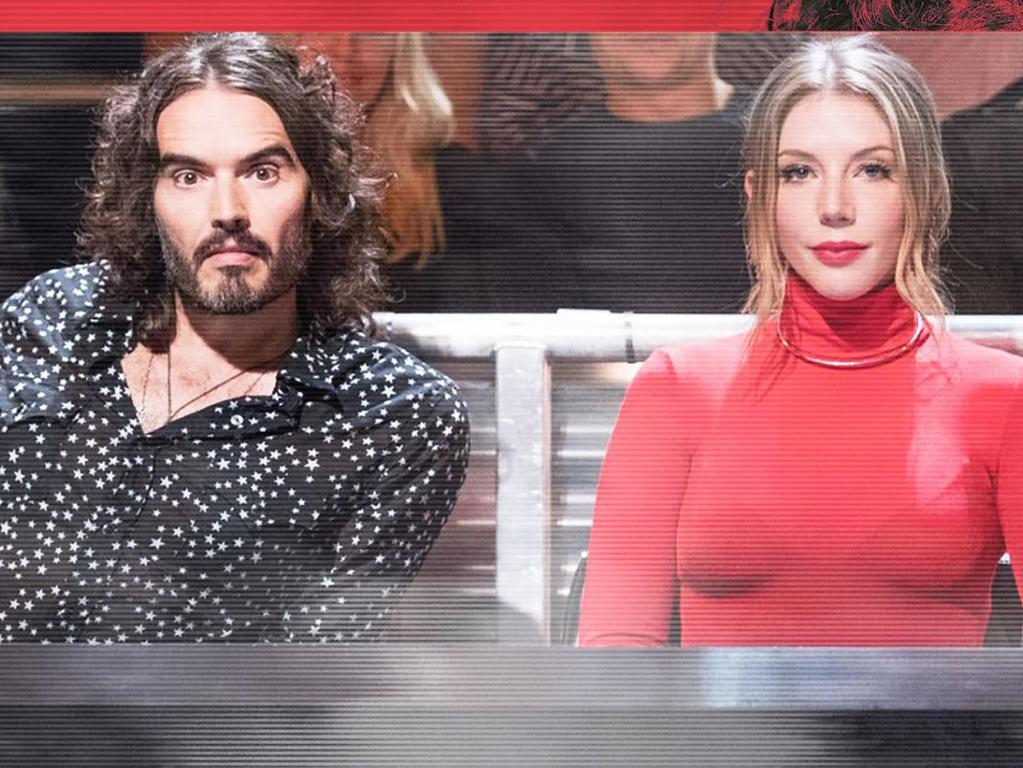Books and a billion YouTube views: how Russell Brand kept making money
While the TV and publishing deals may have dried up of late for Russell Brand, the comedian, actor and author has a loyal online following providing him with an incredibly lucrative new stream of income.
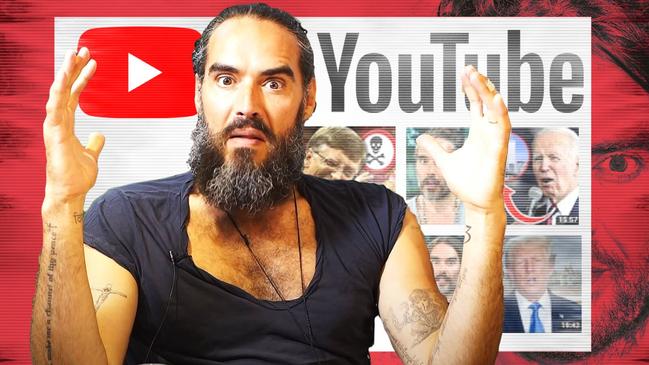
Compared with his heyday in the 2000s when he was a fixture on television and in the press, Russell Brand’s media career now is much less conventional.
However, while the TV and publishing deals may have dried up of late, the comedian, actor and author has a loyal online following providing him with a new stream of income.
Having reinvented himself as a wellness guru who leans into alt-right conspiracy theories, he finds himself relying on social media for projection rather than the BBC and Channel 4, where he made his name.
However, sexual abuse allegations against him, disclosed by The Times, The Sunday Times and Channel 4’s Dispatches, have opened cracks in his online empire. Brand denies all the allegations and insists that all his relationships have been consensual.
The comedian has built up a significant following on YouTube, which is owned by Google, since he joined in 2007, with 6.6 million subscribers. On Tuesday morning YouTube said it had decided to stop him from receiving any more money from the platform.
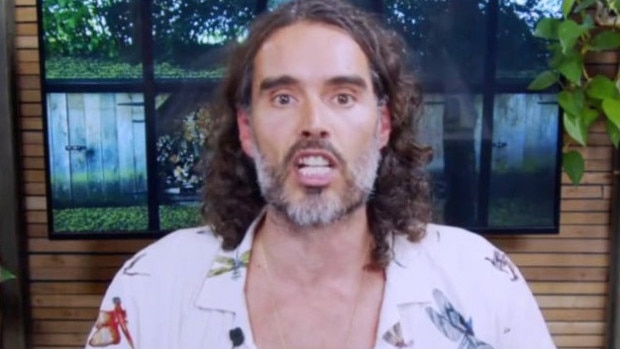
His videos, which have been watched 1.3 billion times, have charted the unusual trajectory of Brand’s career over the past decade. Initially, the channel was dominated by clips of his American talk show, Brand X with Russell Brand, which was cancelled after two series by the TV channel FX in 2013.
Brand, who had moved to the US to pursue a career in Hollywood, marrying the pop star Katy Perry in 2010 only to divorce two years later, moved back to the UK as his appeal in the US waned.
It was YouTube that became the forum for one of his first major revamps in the UK through The Trews, which started in 2014. Filmed in his flat in Hackney, east London, the video series, a portmanteau of truth and news, had Brand musing on the mainstream press and left-wing politics.
Then with only 100,000 followers, his emergence as a political voice on the left, solidified through his book Revolution and an interview with the Ed Miliband, when he was the Labour leader in 2015, caused his YouTube following swiftly to expand.
Miliband has called the allegations about Brand “appalling” and said that they must be “fully investigated”.
In recent years Brand’s output has changed significantly, with the comedian shifting towards the right and discourse laden with conspiracy tropes.
Still presented through a whimsical lens, his videos cover everything from meditation to Donald Trump, and the Great Reset, a popular rallying cry among alt-right conspiracy theorists.
Many other videos dwelled on Covid-19 and vaccines, with titles such as A CRAZY MESS!! Pfizer Whistleblower SLAMS Vaccine Trials.
‘I don’t need to make money anymore’
This burgeoning online following opened up commercial opportunities for Brand. Whether YouTube’s move makes any difference to him remains to be seen. He has shifted much of his content to Rumble, a Canadian video site that has vowed not to censor him. He has 1.4 million followers there.
According to Rumble Stats, a site that is not affiliated with the video platform, Brand earns up to pounds 27,043 a month through his videos on the site.
In 2014 he told Vanity Fair: “I don’t need to make any money any more.” His net worth is thought to be about dollars 20 million. He is also thought to have turned down a divorce settlement estimated at up to dollars 20 million after his divorce from Perry in 2012.
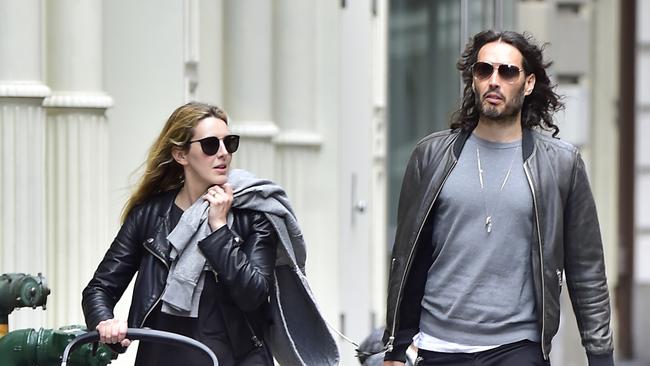
Brand and his wife, Laura Gallacher, 36, a lifestyle blogger and children’s book writer, spent pounds 3.3 million on a seven-bedroom Victorian Gothic property in Oxfordshire in 2016. The couple applied to install a swimming pool, home cinema and other improvements at an estimated cost of more than pounds 1 million after buying the house. Gallacher is the sister of the TV presenter Kirsty and daughter of the Ryder Cup golf captain Bernard Gallacher, 74.
Pablo Diablo’s Legitimate Business Firm
Brand’s main company, Pablo Diablo’s Legitimate Business Firm, has cash in the bank of pounds 4.1 million, according to its latest accounts. The filings suggest that Brand’s annual pre-tax earnings exceeded pounds 2 million in 2021. The company paid its owners dividends of pounds 1.3 million in 2020 and pounds 750,000 in 2019.
Three years ago the Brands bought The Crown, a grade II listed pub in a nearby Oxfordshire village where he is understood to record his online videos.
One online analyst estimated that he earned pounds 18,500 in revenue from his content in the past 30 days, based on the posts he has produced in this period and the number of views gained.
Brand’s posts and videos have helped to build a thriving online presence with 11.2 million followers on Twitter, 2.3 million on TikTok and 3.8 million on Instagram.
After his career took off in the mid-2000s, Brand enjoyed lucrative turns in films such as Forgetting Sarah Marshall and Get Him to the Greek. His debut book, My Booky Wook, became a bestseller in 2007 and he went on to sign a pounds 1.8 million two-book deal with HarperCollins in June 2008.
Brand has released several other books but this week the British publisher Pan Macmillan, whose imprint Bluebird was due to publish Recovery: the Workbook in December, said it had dropped him.
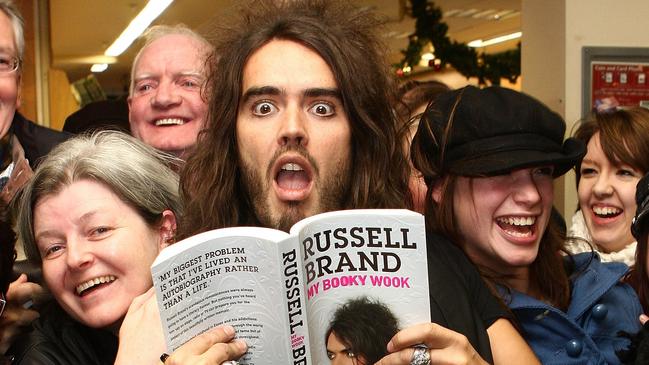
The broadcaster’s portfolio has diversified in recent years. He runs an Awakened Wonders community, where members get exclusive content in return for a subscription fee.
Brand has hosted a number of podcasts, including regular Stay Awake meditations and the interview series Under the Skin. Acast, the world’s biggest podcast company, which recently announced plans to distribute the show, said it had turned off advertising on the series after claims about Brand’s treatment of women emerged.
His gravitation to the wellness sphere has also opened up the opportunity to host events. In July guests paid pounds 250 to attend his three-day community festival in Hay-on-Wye, Powys.
The Times

